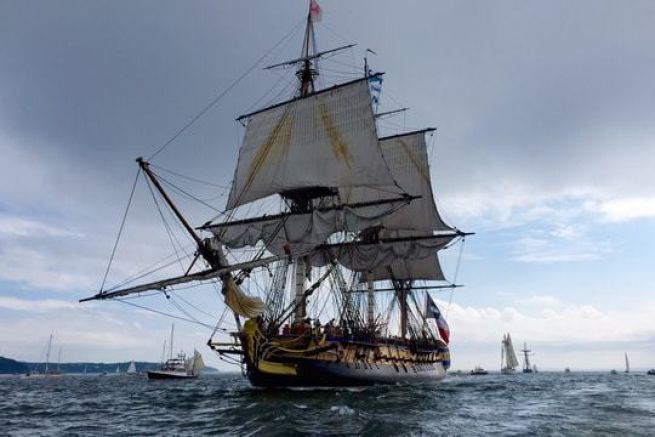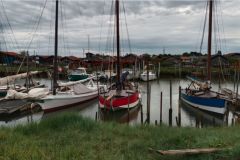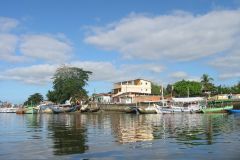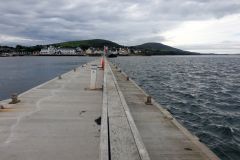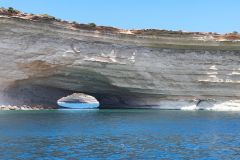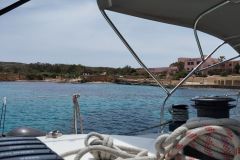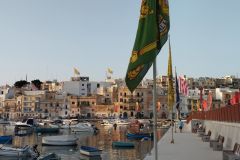Celebrating July 14th in an old French-speaking city
After celebrating the 4th of July, American Independence Day in New York, the 14th of July, French National Day, was celebrated in Castine. The Hermione made a grand entrance into the city's harbor. She was accompanied by a myriad of boats forming a superb parade and advanced to the sound of the church bells.
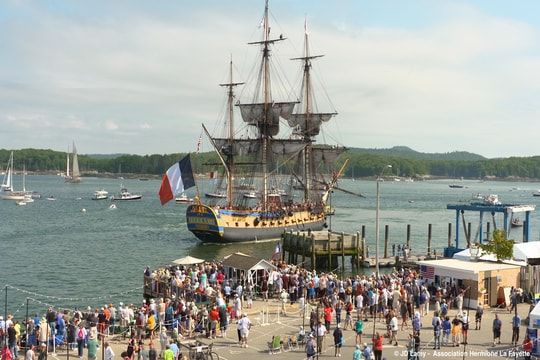
After the naval parade, celebrating the arrival of the sailing ship, another one took place in the streets of Main Street before the popular ball, preamble to the fireworks. During the stay of the frigate and its crewmen and women, many animations punctuated the days. "Numerous events were scheduled: naval parade, popular ball, traditional French and American music and dances, historical re-enactments, etc." reads the Hermione's blog.

For the arrival of the Hermione, the entire city had covered the colors of France, to commemorate what is called "Bastille Day." A fireworks display lit up the Castine sky at nightfall, as the men and women of the frigate's crew looked on.
The replica of La Fayette's ship set sail again on the night of July 15 to 16, heading for Lunenburg, the only Canadian stopover of the trip.

A stay with French notes
Castine was for a short time, in the 17th century, the capital of Acadia. This territory was founded in 1604 on Amerindian lands that had been inhabited for 11 millennia. Populated from western France, Acadia was part of the French colonies in North America, created in the 16th and 17th centuries and gathered in New France.
After the conquest of Acadia by the British in the 18th century, the population was deliberately deported to England and the rest of the American territory from 1755 to 1763. Today, Acadia has disappeared as a political entity, but retains a strong cultural entity. Thus, half a million inhabitants in the Atlantic provinces of Canada and, to a lesser extent, in Maine, remain attached to the French language.

